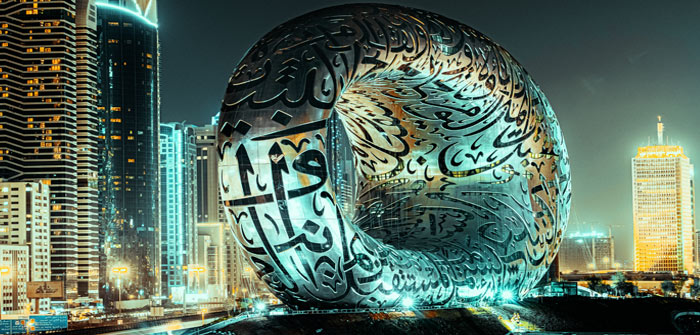Dubai is a multicultural, multi-ethnic city with its culture rooted in Islam. It is one of the most important cities in the Arab Muslim world. While the food and entertainment avenues reflect Dubai’s cosmopolitan nature, the use of traditional wear in daily life and the practice of Ramadan showcase the Emiratis’ respect for their culture.
Every neighborhood in Dubai has its own mosque where prayers are offered five times a day. Simultaneously, there is an equal number of shopping malls, beach resorts, theaters, food outlets, public parks, and other avenues for entertainment that make Dubai unique in the Arab world. Dubai is a progressive, business-savvy city that hasn’t lost touch with its core values.
Population
Dubai is the most populous state in the federation of the United Arab Emirates (UAE), with a population of 3.6 million (as of August 2023).
Nationality
Dubai is a multicultural city primarily composed of non-citizen immigrants, while its citizens are referred to as Emiratis.
Ethnicity
According to Wikipedia, approximately 67% of the expatriate population (and 71% of the emirate’s total population) is South Asian. About 25% of the population have Iranian origin. About 8% of the total population of Dubai is categorized as “Western”.
Religion
Islam is the most widely practiced religion in Dubai, with Muslims comprising majority of the total population. The remaining who are non-citizen immigrants, practice Christianity and Hinduism. Dubai also houses Hindu Temple and Sikh Gurdwara, and Christian churches are present as well.
Languages Spoken
Arabic is the official language of Dubai, but other languages such as English, Hindi, Malayalam, Urdu, and Persian are also spoken, primarily by expatriates.
Traditional Costume
Emiratis, both men and women, wear traditional garments in their everyday lives as a symbol of national pride and cultural continuity. Men wear ankle-length robes called ‘dishdasha,’ typically white.
Their headgear consists of a skull cap (gafia), a white or red-checkered head cloth (gutra), and a twisted black coil (agal). Traditional women’s attire includes trousers (sirwal), a floor-length embroidered dress (jillabeeya), a black cloak (abaya), a veil (nikab), burqa, and hejjab.
Cuisine
Dubai offers a wide range of cuisines due to its multicultural nature. Indian, Pakistani, and Filipino restaurants offer good-quality food at reasonable prices, while Japanese, French, and Thai restaurants are on the expensive side.
Arabic food, typical of Iran and Lebanon, is also available. Bars are primarily restricted to tourists and business hotels, as many restaurants are run by Muslims.
Folk Dance And Music
Arabic music is the most ancient and popular form of folk music in Dubai. It incorporates percussion instruments like drums and tambourines, violins, and flutes. Different forms of folk music include town, sea, and desert songs. Dubai’s folk dances are influenced by the accompanying music.
For example, Ayyala, a battle dance, is set to beating drums. Liwa, performed at weddings and special occasions, is accompanied by African music. Haban (or Khayali) gets its name from the string instrument played during the dance.
Festivals
Ramadan is the holy month of fasting for Muslims, during which they fast every day for an entire month and offer more prayers than usual. After sunset, they gather with their families to break their fasts, making it a festive time for Muslims.
Non-Muslims are strongly advised not to eat in public areas during the day. Ramadan concludes with the celebration of Eid-ul-Fitr, marked by wearing new clothes, preparing lavish meals, and visiting relatives and friends. It is the biggest festival in the Muslim calendar.
Eid-ul-Adha, another Muslim festival, follows Hajj, which occurs near the end of the Muslim calendar year. Hajj is the divine pilgrimage to the holy lands of Saudi Arabia. Additionally, Dubai hosts the Dubai Shopping Festival (the world’s largest of its kind) and the Dubai World Cup, adding to its festival scene.
Entertainment
Dubai’s entertainment options are shaped by its geographic location, cultural practices, and heritage. You can indulge in activities such as desert safaris, sand surfing, dune diving, and wadi (dry river beds) bashing, as well as camel racing and falconry. Traditional boat cruises (dhows) on the Creek and the Gulf, shopping at century-old souks, birding, and photography are also popular choices.
